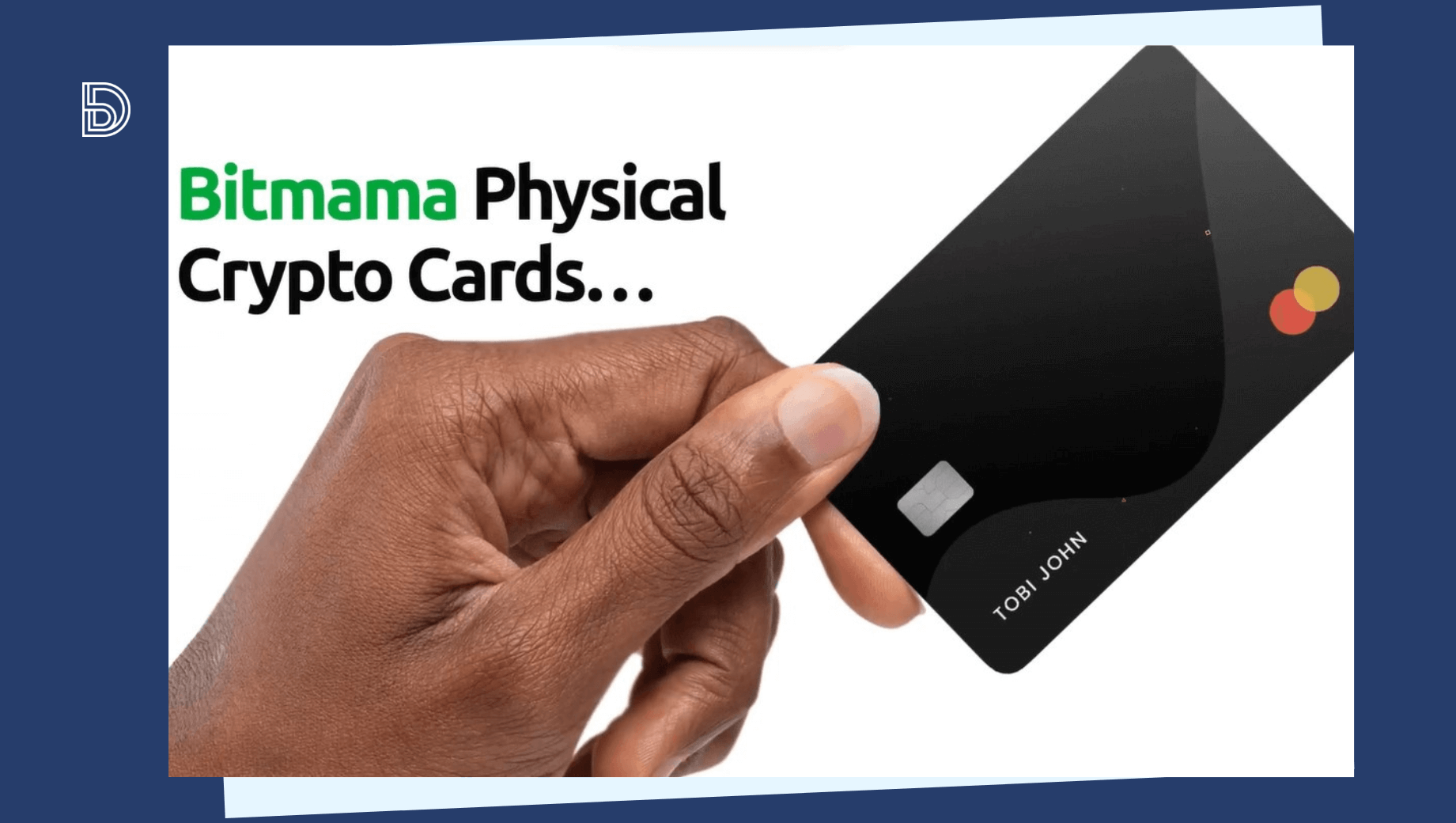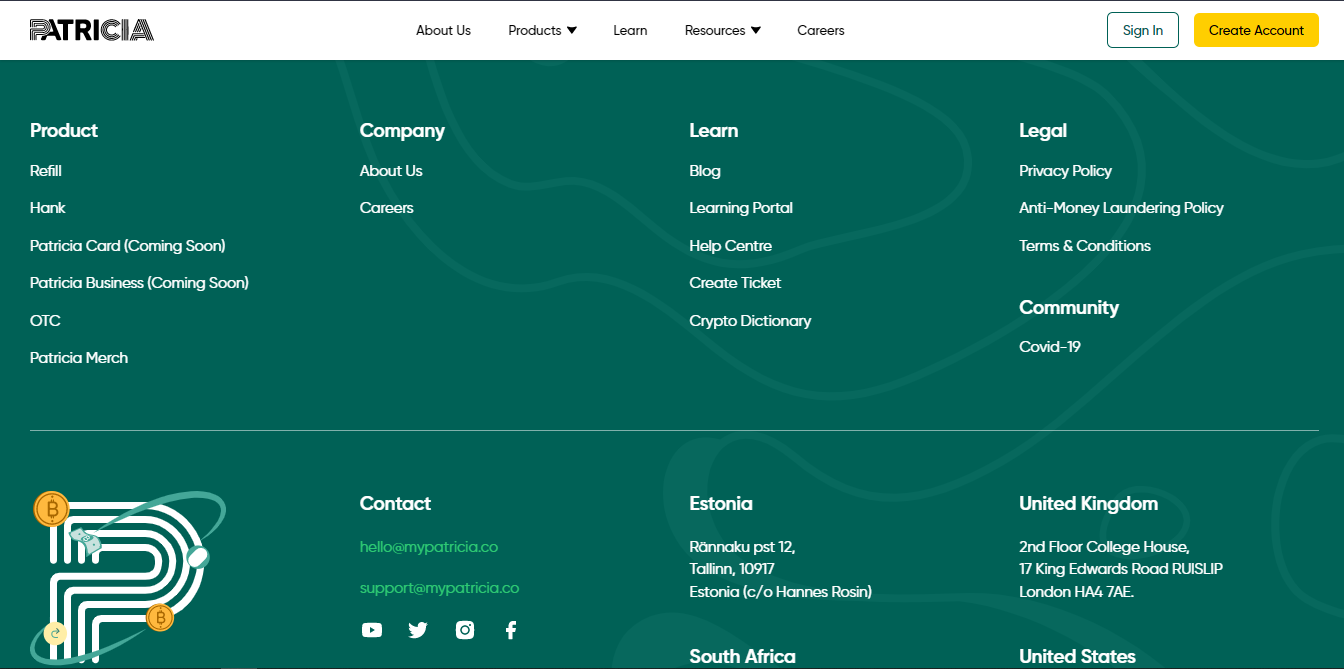Bitmama launches physical crypto debit cards
While Bitmama ranks top as the first African blockchain company to launch physical crypto cards, there are other crypto debit cards providers in Africa.

Bitmama has launched physical crypto debit cards that allow users to directly spend their cryptocurrencies without converting to fiat. It joins the growing list of crypto debit cards providers in Africa.
Earlier in November 2021, the Delaware-headquartered crypto exchange had launched virtual crypto debit cards on its cross-border payments platform Changera.
The launch of these virtual and physical (or plastic) crypto debit cards is in line with Bitmama's ambition "to onboard the next billion crypto users by building lifestyles crypto products and pushing the narrative of crypto beyond trading".
That's a noble and laudable ambition because the motif of most crypto conversations is buying the dip and making returns during the high. So it's good Bitmama is not the only one on a mission to change this narrative. Startups such as LazerPay and Nestcoin are supporting and making other use cases of crypto mainstream.
According to the 2021 Chainalysis Geography of Cryptocurrency Report, in Africa, cryptocurrencies are mostly used for three things: remittances, international commercial transactions, and hedging against inflation and harsh economic conditions. But to do any of these, you have to convert crypto to fiat or vice versa.
"Imagine the possibility of performing online transactions directly with your coins [cryptocurrencies]", writes the founder and CEO of Bitmama Ruth Iselema. "You don't have to imagine it...we've made it a reality with Bitmama crypto cards".
Ruth launched Bitmama in 2016 after she lost some money to crypto trading.
International payments for the average African is a complete hassle. This was quite evident during our team’s recent trip to Nairobi, Kenya for the African Tech Summit. While we paid for our flight tickets, visa fees, Airbnb, Bolt rides, and literally all forms of online payments with our Bitmama’s virtual crypto cards, making the in-store payment was difficult as our local naira debit cards kept declining on POS devices and ATMs due to the $100/month FX spending limit on local cards, which has been recently lowered to $20/month by several local banks in Nigeria. Hence, we had to resort to holding physical dollars, which is tough to source, in order to convert to local currency at a BDC. Needless to say, this was the experience of the majority of international travellers at the event, who kept stopping by our booth to ask for physical cards. By popular request, we are again pleased to say that our physical crypto cards are here and have come to stay. Anyone can request and use these cards.
In addition to Changera, Bitmama also has peer-to-peer and buy crypto, pay later features (BCPL just like BNPL). And as of October 2021 when Bitmama announced its $350,000 pre-seed, it had over 15,000 customers across Changera and its exchange products. Then, Bitmama also said it plans to expand into Kenya, Europe and some Francophone countries. However, it's currently active in Ghana, Kenya, and Nigeria.
Like the virtual crypto cards, the physical crypto debit cards can be funded with stable coins — USDT, USDC and cUSD. And the monthly spending limit is over $10,000, which is 9,900% more than the limit on fiat debit cards issued by Nigerian banks. Bitmama physical crypto debit card is powered by Mastercard.
Other features and benefits of the physical crypto card include:
- No minimum deposit is required to get one but the issuance fee is $7. Any Bitmama user who completes the verification process can request one. And if they were to pre-order before April 30, 2022, they'll get a 10% discount on the issuance fee.
- Working for online payments on most platforms, including Bolt, Uber, Spotify, ASOS, eBay, Facebook, and AWS.
- Working for in-store payment options such as POS terminals
- Can be used to withdraw from ATMs anywhere in the world
- Will be delivered to users anywhere in the world. Although users will pay the cost of delivery.
- Can be pre-ordered from the Bitmama app.
Other crypto debit cards providers in Africa
Bitmama claims it's the first mainstream African blockchain company to launch physical crypto cards. And that claim can't be refuted because the other companies that provide crypto cards in Africa are neither founded by Africans nor targeted at Africans. And in the case of First Kudi (formerly Kudi Exchange), moribund.
In December 2019, First Kudi — the Lagos-based crypto exchange and payments platform owned by TLG Ventures in partnership with Ferrum Network — launched debit cards in partnership with Stanbic IBTC Bank. The Verve debit card allows users to spend fiat and cryptocurrencies such as Bitcoin and Gemini US Dollar (GUSD).
Similarly in February 2020, Nigerian alternative payment and e-commerce company Patricia Technologies Limited announced the launch of physical crypto cards. But the Estonia-headquartered startup and its partner bank — Rubies — encountered regulatory bottlenecks that caused them to discontinue the rollout.
But even at that, Patricia Card was a Bitcoin debit card, unlike Bitmama's stable coins (USDT, USDC and cUSD) crypto card.
Interestingly, Binance, Coinbase and Crypto.com cards are not available in Africa.

While Bitmama cards rank top, there are other top crypto cards in Africa.
Crypterium
Founded in October 2017 by Austin Kimm, Gleb Markov and Vladimir Gorbunov, Cypterium is a mobile app that allows instant payments in cryptocurrency. It is self-described as "a bank but for crypto". Cypterium virtual and physical debit Visa cards allow users to spend cryptocurrencies and withdraw fiat cash from ATMs.
Paycent
Paycent is a mobile wallet that seamlessly enables users to exchange multiple digital assets. It was founded in 2016. And users can order a physical Paycent Card powered by Mastercard which can be used globally through the Paycent app. Although Paycent Card is not a crypto debit card like Crypterium or Bitmama's, it can be funded with cryptocurrencies.
Uquid
Uquid Card is a virtual and physical debit card that can be funded with over 40 cryptocurrencies, including Bitcoin and other alternative coins like Litecoin. Tran Hung founded the company in 2016 and it was one of the three startups showcased at the 2017 TechCrunch Disrupt.
Advcash
Founded in 2014, Advcash is an electronic payment hub that provides e-wallets in multiple currencies, prepaid cards, merchant APIs, and supports cryptocurrencies. ADV cards allow users to spend their Advcash balance worldwide.
Club Swan
Club Swan is a membership platform that provides financial services such as e-money issuance, payments, and card services through Nvayo Limited — which is not a bank. It also provides concierge services.
The Club Swan card is included in the membership and is not subject to any extra costs such as annual administration fees. The card is shipped free of charge by DHL Express Global shipping. And members can top up their cards using Bitcoin, Ethereum, Litecoin, or any other cryptocurrencies.
Cryptopay
Founded in October 2013 by Dmitry Gunyashov and George Basiladze, Cryptopay is a safe digital platform that enables users to manage their traditional and digital assets in one place.
Cryptopay virtual and plastic cards allow users to spend their cryptocurrencies anywhere Visa is accepted. They can be funded with Bitcoin, Ethereum, Litecoin, and Ripple.
Monolith
Monolith crypto debit card is powered by Visa and it's focused on the Ethereum ecosystem as such all the cryptocurrencies the card supports are part of the Ethereum ecosystem. Monolith debit cards can be used anywhere Visa cards are accepted.






